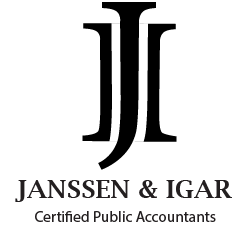Link to original article: https://www.cpajournal.com/2022/08/10/rental-activity-and-self-employment-tax/
By Robert S. Barnett, JD, CPA
May/June 2022, Featured, Taxation |
August 2022
Tax planning for real estate activities often involves a myriad of tax considerations. For example, if the real estate produces a loss, a determination must be made whether the loss is limited by insufficient basis or by the at-risk or passive activity loss rules which arise under IRC sections 465 and 469. When income is generated, other questions arise, including whether such income will qualify for the IRC section 199A deduction introduced by the Tax Cuts and Jobs Act (TCJA) of 2017, whether the income may be subject to the net investment income tax surcharge of 3.8% under IRC section 1411, and whether the rental income will be subject to self-employment tax. This article discusses the intersection of rental real estate and the self-employment tax.
In a Chief Counsel Advice issued on December 23, 2021, CCA 202151005, the IRS discussed various rules relating to the application of self-employment tax by describing two general fact patterns. The CCA involved limited issues, but provides a good starting point for understanding how the IRS classifies real estate rentals for self-employment tax purposes. Both fact patterns involve the application of IRC sections 469(c) and 1402(a)(1) to short-term residential rentals from real estate. IRC section 469 describes the rules related to passive activities, and IRC section 1402 discusses net earnings from self-employment (NESE).
CCA 202151005In the first example, the individual taxpayer provided various services and accommodations with respect to a vacation property rented via an online rental marketplace. The taxpayer provided the following services: Linens, kitchen utensils, all items making the property fully habitable, daily maid services, delivery of individual-use toiletries and other sundries (not described), Wi-Fi service, beach access, recreational equipment, and prepaid ride-share vouches between the property and the nearest business district.
In the second fact pattern, the individual landlord rented a fully furnished room and bathroom without access to most common household areas such as the kitchen or laundry room. Cleaning was only provided between each occupant’s stay, and the example included no discussion of any other items furnished to the occupants.
In both examples, the individual taxpayer was not a real estate dealer. Surprisingly, and without discussion, both examples also stated that the rental activity occurred in the course of a trade or business. Because average customer use was less than eight days, both activities were not considered a rental activity for IRC section 469 purposes [Treasury Regulations section 1.469-1T(e)(3)(ii)(A)]. The examples also included a statement that taxpayers materially participated in the activity for purposes of the passive activity rules, but they did not describe how the required tests were met.
The CCA concluded that the determination of whether the activity constitutes a rental activity under the passive activity rules is not determinative for self-employment tax purposes. In addition to income taxes, IRC section 1401 imposes tax of 12.4% on the self-employment income of individuals. IRC section 1402(b) defines self-employment income as NESE, which is described in section 1402(a) as the income derived by individuals from any trade or business carried on by such individual, less the deductions allowed that are attributable to such trade or business, plus the distributive share of partnership income. However, IRC section 1402(a)(1) excludes net rental income from NESE unless the amounts are received in the course of a trade or business as a real estate dealer. In both fact patterns, the taxpayer provided short-term residential rentals and was not a real estate dealer. Treasury regulations provide that rentals from living quarters are not considered NESE and are considered rentals from real estate when no services are rendered for the occupants [Treasury Regulations section 1.1402(a)-4(c)(1)]. The CCA discussed two examples that addressed the level of services provided to the occupants.
With respect to the services rendered to occupants, the two fact patterns present a stark contrast. In the first situation, net rental income was not excluded from NESE due to the substantial services provided; in the second, the income was excluded from NESE as residential rental income. These were predictable outcomes: What about situations not as blatant as the first fact pattern, but perhaps not as starkly bare as the second? In describing services, the CCA states that “services are considered rendered to the occupant if they are primarily for his convenience and are other than those usually or customarily rendered in connection with rental of rooms or other space for occupancy only.” For example, the IRC section 1402(a)(1) exclusion from NESE did not apply to the rental of a vacation beach dwelling that included services such as maid services, swimming and fishing instruction, mail delivery, furnishing of bus schedules, and information about local churches [Revenue Ruling 57-108, 1957-1 C.B. 273].
The Treasury Regulations provide some bright line tests which indicate that the following do not constitute rentals from real estate: Rentals in hotels, boarding houses, tourist camps or tourist homes, parking lots, warehouses, or storage garages [Treasury Regulations section 1.1402(a)-4(c)(2)]. The regulation describes tainted services as those rendered to the occupant for the occupant’s convenience other than those “usually or customarily rendered in connection with the rental of rooms or other space for occupancy only.” For example, the furnishing of heat and light, cleaning of public areas, and the collection of trash are not considered as services rendered to the occupant; the supplying of maid services, however, is. In cases where multiple rentals are involved and some include services for the convenience of the tenants and others do not, the regulations clarify that the rentals must be viewed independently for calculation of the portion attributable in determining NESE.
Unfortunately, there is no bright-line test, and all facts of any particular case must be carefully evaluated. A fundamental question relates to services that maintain the property in condition for occupancy; such services are not considered rendered for the tenant. If services are rendered for the tenant, the next inquiry is whether tenant’s services are substantial.
In BoBo v. Commissioner [70 T.C. 706 (1978), acq.], the taxpayers owned a 46-unit mobile home park in California. Because the park grounds were paved, no landscaping or maintenance was required. The taxpayer’s resident manager periodically cleaned leaves and other debris. Each home space was furnished with gas, water, a sewer, and a separately metered electrical connection. Tenants’ garbage was collected by a local company. An independent concession provided two coin-operated washers and dryers at the premises with connected water, electricity, and sewer. Machine repair was the responsibility of the concessionaire who also collected the deposited money. The taxpayer received a commission from the operator. No recreational facilities were provided. Rent was collected and general operations were performed by the resident manager.
The central issue was whether the mobile park earnings were subject to self-employment tax. Because the IRS asserted that self-employment tax applied and relied on the fact that the mobile park rendered services to its tenants, the earnings were not excludable earnings and did not constitute “rentals from real estate” under the statute and regulations. The court noted that because the taxpayer provided cleaning, ground maintenance, sewage and electrical connections, laundry, bath, and toilet facilities, and roadway maintenance, he provided services other than those “usually or customarily provided in connection with the rental of space only for occupancy.” The ruling clarified that many of the provided services, such as furnishing of heat, light, the cleaning of public areas, collection of trash and others, are not considered as services rendered to the occupant under Treasury Regulations section 1.1402(a)-4(c)(2). The court viewed most of the provided services as those required to maintain the premises for occupancy. Although providing laundry services does not meet that exception, such services were provided by the concessionaire and the court found that this service was not sufficiently substantial and did not constitute a material part of the rental payments made by the tenant. The court viewed the laundry as an incidental or minor service to the occupant who “pays rent primarily for his space and the services necessary to maintain it.” The court stressed that the determination is based upon all facts and circumstances, including the materiality of the nonexempt services, and that each situation needs to be carefully evaluated before a position is maintained.
Commercial Rentals
A common question arises as to whether 1) a rental real estate trade or business, or 2) a taxpayer that qualifies as a real estate professional, is required to pay self-employment tax on net rental income. CCA 202151005 stated that the rental in the second example occurred in the course of a trade or business and was excluded from NESE, but the activity seemed quite limited. In Blythe, et ux. v. Commissioner (TCM 1999-11), the taxpayer owned 10 parcels of residential real property. One of the central issues in the case was whether self-employment tax was required to be paid on the net rental income. Because the taxpayers claimed that they were not real estate dealers, the net rental earnings were not earnings from self-employment. The IRS maintained that the rentals constituted a trade or business; therefore, the income was required to be included in NESE. The court found that the taxpayer acquired the parcels for the purpose of producing rental income and was not holding title for the purpose of selling real estate to customers. The taxpayers did not offer any of the parcels for sale during the year under audit or at any other time. The court found that because the taxpayers were not real estate dealers, the net rental income was not subject to self-employment tax.
Limited Guidance
Net earnings from self-employment are subject to self-employment tax. There is a statutory exclusion for rentals from real estate and personal property leased with the real estate. CCA 202151005 helps to guide taxpayers with respect to the structure of residential rentals. In some situations, the services provided will resemble either one of the two fact patterns in the memorandum, but the analysis will often be more difficult. Tax preparers will have to review and assess the significance and materiality of all services provided to residential tenants





